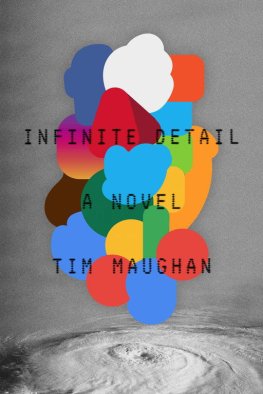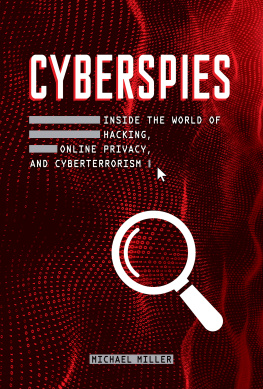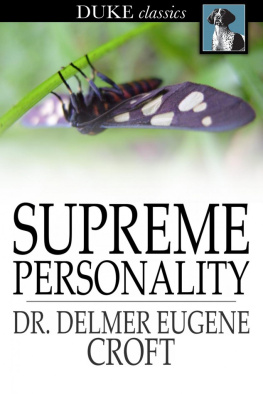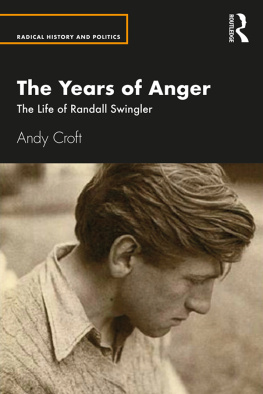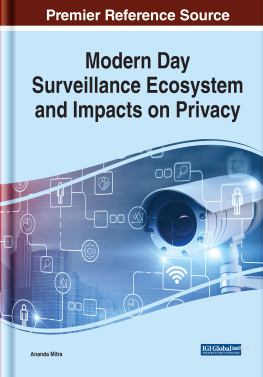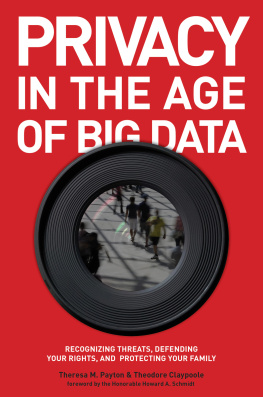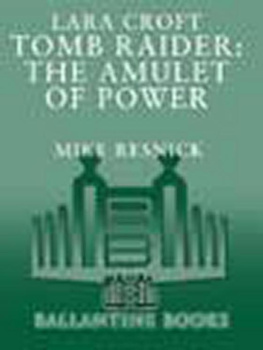The author and publisher have provided this e-book to you for your personal use only. You may not make this e-book publicly available in any way. Copyright infringement is against the law. If you believe the copy of this e-book you are reading infringes on the authors copyright, please notify the publisher at: us.macmillanusa.com/piracy.
The pathetic tinkle of the shops bell announces their first visitor, the first believer of the day. The first of the regulars, the tired-looking mothers and lost children, the ones that come in just to catch a quick word with Mary, to thank her, to nervously leave offerings on her desk, to smile their awkward, uncomfortable smiles. The ones that just pop in to stare at the sad, pale, distant, generic dead faces.
All right, Janet, Tyrone says.
Hello, Tyrone. Janet flashes him a nervous smile from beneath her cowl of lank, greasy hair, her face gaunt pencil marks on torn gray paper, almost merging into the crowds that watch them from the walls. Its enough of a smile that he knows shes genuinely pleased to see him, like his unprompted words to her are some minor but important victory, one of the few tiny sparks of life that separate her from Marys drawings.
Is she busy? Janets eyes twitch anxiously around the room, her grip tightening on the oversized blue IKEA cube bag that bulges with unknown junk.
Tyrone glances over at Mary. Shes sitting there as always, at the back of the shop, teenage eyes peering at him over the kaleidoscopic mass of debris that litters her deskcans full of pens, crayons, paintbrushes, and sticks of chalk, broken toys. Worthless trinkets and colorful fragments of junked history that threaten to dwarf her barely teenage frame. Gifts from believers. She smiles back at him over it all, through those heavily paint-splattered glasses of hers, lowers her eyes back down to her desk. He cant see what shes working on from here, the paper protected from view by castle walls of priceless detritus, and in all truth he doesnt care. He knows exactly what it is, the same thing she always draws.
He knows its the face of another dead person.
Most likely, he thinks, its the face of another dead white person. They always seem to be white people. Dead white people. Hes seen so many of them now that he struggles to tell them apart. College likes to joke that its because all white people look the same, but Tyrone knows thats not true. Its something else, perhaps how Mary always draws themsad, pale, distant, generic. Or maybe thats just how dead people all look.
Nah, shes just drawing. Go say hello, innit.
Mary squeezes ghosts from sticks of chalk, traces lines of memory in pastel.
Hello, Mary.
Mary looks up, over the brim of her glasses, and her heart sinks slightly from awkward discomfort as she sees Janets nervous face looking back at her; feels her disturbed, overfocused eyes drilling into her skull. Its not that she dislikes her, its not that she dislikes any of the believersTyrone and Gridss word, not hersits just their unfailing intensity that puts her on edge. She doesnt blame them; when she can see past the thousand-yard stares and the sense of odd displacement she can see the hurt, the pain, the struggle to cope with the shock. Plus its her fault theyre here, that they come to see her. They come because of what she does, what she is.
Grids tells her shes a celebrity. He says people need celebrities, especially now. He says there used to be too many of them, but then they were all washed away with everything else. Marys not too sure about this, not sure she wants it, but she remembers his words at those times when she wants to avoid the people like Janet, to avoid the devotional gazes and awkward exchanges, to run from the responsibility.
Morning, Janet, how you doing?
Im o-kay. Theres a high-low timbre to that last word, a noncommittal tone shift fishing for concern. Mary ignores it, not wanting to get sucked in. She always tells Tyrone she likes his music, his ancient tapes, and it aint a lie, but the real reason she lets him play it in the shop all day is because it sucks the silence out of the room, fills the awkward vacuums, lets the pauses slip by more easily.
Janet aint stopping, though. What are you drawing? Another one?
Mary looks down at the pale paper, the reverse of a two-foot-wide segment torn from the back of a Land Army recruitment poster, and for the first time this morning she feels like she really sees it. Formless pencil marks. Thick, dappled, inconsistent lines in chalk dust. Powdered history deposited on the texture of cracks from her unwashed hands. She looks, but remembers none of it, as though she had no part in its creation.
Yeah. Another one.
Oh, I brought you something! Janet rummages in the pockets of her torn, stained, but still defiantly pink anorak, and then in the pockets of her baby-blue jogging bottoms, the faded trousers so short that the gray elasticated trim grips her ankles, exposing two-inch bands of pale skin marbled with blue veins as they fail to reach the rainwater-grayed, blood-flecked bandages that she wears because the ships carrying socks from China and India stopped coming.
Eventually she gives up and turns to the inevitable, muttering to herself as she opens wide the long-broken zip mouth of the IKEA bag, the blue plastic cube straining along its frayed seams, where it looks in places like single white fibers are the only things maintaining its hull integrity. Mary fears it might explode, either from pressure buildup or Janets fevered rummaging, and fill the shop with even more historical residue, the same sedimentary layer of scraps shes been trying to dig her way out of all her life.
Here! Found them! exclaims Janet, just a little too loud, a little too excited. She thrusts forward a fist of brightly colored tubes, of various widths and lengths, her face full of glee and accomplishment. Mary takes them, smiles with forced appreciation, and thanks her as she cradles the gift in her open hands. Broken crayons; empty plastic pen shells; leadless, splintered pencils. Useless, all of it. But Mary feels some warmth from the gesture, sincerely, understands what these discarded odds and ends represent to some, the value they have in their irreproducibility, their nostalgia, their power as memory triggers. She understands these things way too well, and as she stares at her open palms the vibrant chalk dust that patterns them turns black and impossible to remove, as memories of scrabbling in the dirt, digging with broken fingernails in the shit, flood her senses.
She wants to throw them back in Janets stupid fucking face.
She doesnt, she just smiles, thanks her again, gently lays them down on the desk. Memories fade, but the private stench, known just to her, still lingers.
Janet, about to speak, looks pleased enough, though, happy her gift has been welcomed, and Mary remembers Gridss words. Give them what they want.
I was just wondering, if maybe The same question, every day. Mary knew it was coming.
I was just wondering, if maybe, if you were out today, and you saw our Mark
Janet
You know, maybe youll see him out in the street, yknow. Janet points toward the front of the shop, the light filtering in through the half-boarded-up windows. Maybe if you see him out there you could tell him something for me?
Janet weve been through this before. You know I cant say whether Ill see him. I cant always choose who I see.
I know, my love, but you might
I I might, yeah, but its not very likely. And even if I did, I cant talk to him.
But you could just tell him


